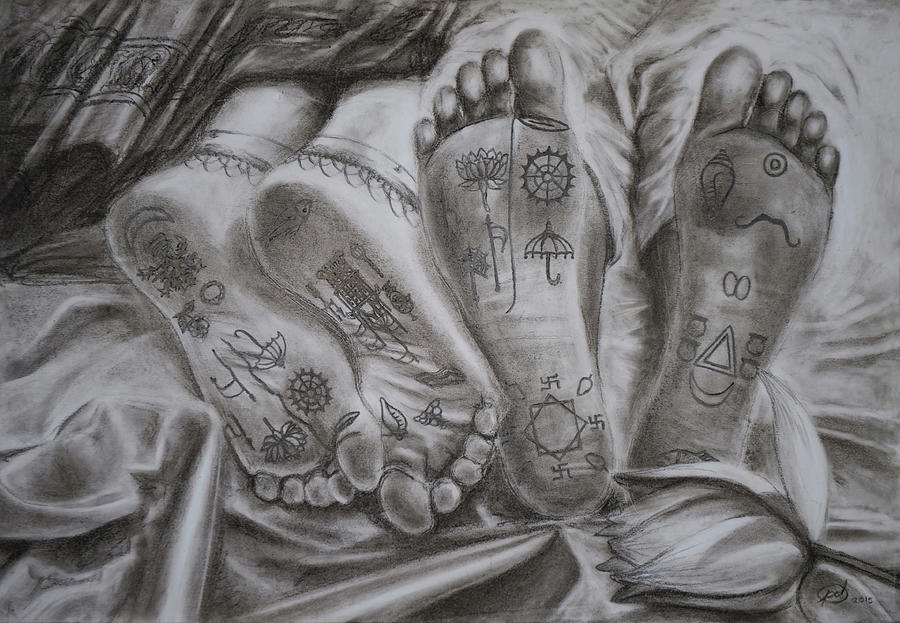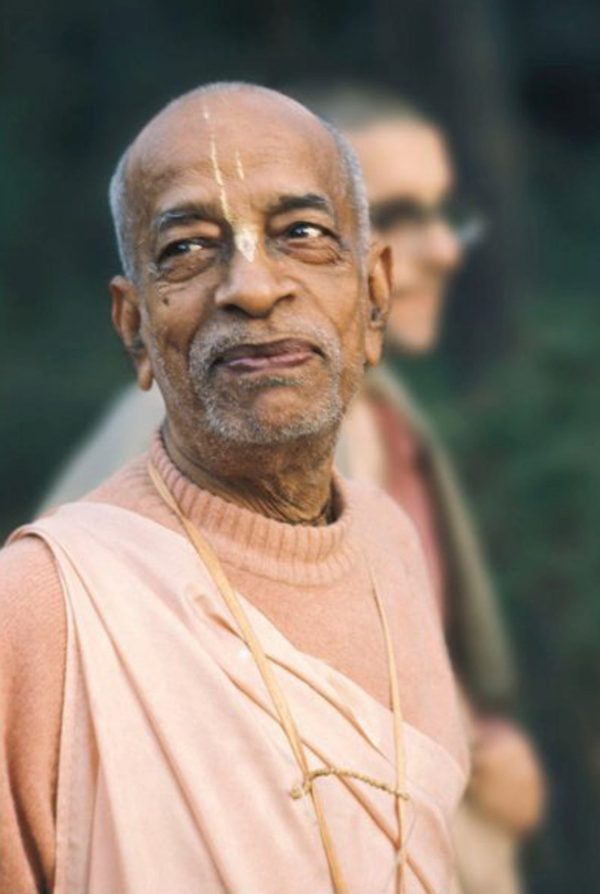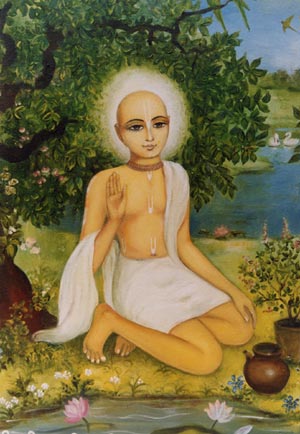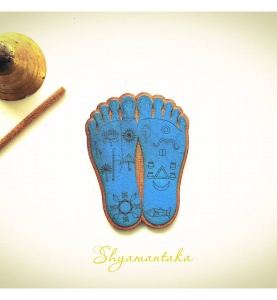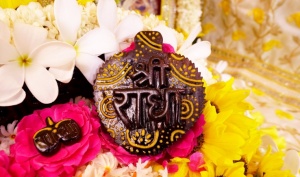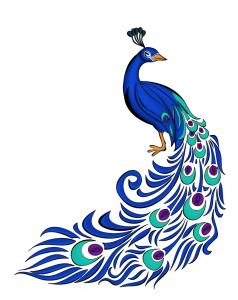Šri Hit Čaurasi,- Šri Hita Harivanšo Mahaprabhu poezijos/ maldų rinkinys. Šią knygą sudaro 84 eiliuoti tekstai. Dalinuosi 3-iojo himno apie transcendentinę meilę lietuvišku vertimu! Jay Vrindavan! Jay Harivanš!
Verčiau remdamasis Hari-Radhacharan das (https://sriharivansh.wordpress.com/sri-hit-chaurasi-84-songs-of-sri-harivansh-mahaprabhu/ (anglišką vertimą taip pat pridedu)) ir Pratibha Goswami (knygos: Hit Chaurasi- the 84 hymns of Divine Love) angliškais vertimais, bei sanskrito kalbos žodynu (https://sanskritdictionary.com/).
Švintant įsimylėjeliai yra vis dar ištroškę meilės! prāt samay dou ras lampat|Šri Hit Čaurasi (3-ioji malda)!
prāt samay dou ras lampat,
surat-juddh jay-jut ati phūl | 1 |
Švintant įsimylėjeliai yra vis dar ištroškę meilės. Po visos nakties meilės kovų Abu jaučiasi nugalėtojais (herojais).

“Early in the morning, the couple are [still] greedy for love,
rejoicing greatly in the victorious battle of erotic delight.
shram-vārij ghan-bindu vadan par,
bhūshan angahi ang vikūl | 2 |
Sunkūs prakaito lašai dekoruoja Jų veidus. Aplink išsibarste guli papuošalų likučiai.

heavy drops of perspiration adorn their faces,
and dishevelled are the adornments on their various limbs.
kachu rahyo tilak sithil alakāvali,
vadan kamal mānau ali bhūl | 3 |
ali आलि – bitė; alii आली – draugė (moters);
kamal कमल – lotosas;
vadana वदन – veidas;
Tik likučiai tilakos yra pas Juos ant kaktų. Palaidi (Radha Krišnos) plaukai primena bičių spiečių, kuris pakerėtas nuostabaus lotosinių veidų grožio nutūpė ant Jų (mėgindamas atsigerti meilės*).
*atrodo, kad bitės panoro atsigerti meilės.
Of their tilakas, only a little remains, and their curly locks, like bees are deceived by their lotus faces.
Only a litle Tilak (a red spot) on the forehead has remained. Their head ornament hangs down. Seeing the lotus face of Sri Shyama black bees have forgotten to fly away from there. All the bees want to suck that prem ras from the lotus. Her hair looks like a queue of black bees.
VYAKHYA :
“In the very early morning, these two rasa-lampatas [the ones lobhi/greedy for rasa] are feeling extremely joyful as they both feel they have gained victory in the battle of love. Only a little tilaka remains on their foreheads. Their curly locks have become loose and are swaying over their faces to and fro. This makes it appear as though a group of black bees [bhramara] have forgotten to fly and are instead captivated by Priya Priyatam’s faces, which are like two treasure boxes full of lotus nectar.
Being situated in his Sakhi-bhava, Sri Hit Harivansh says that Sri Shyama Shyam’s eyes and wordsare all drenched with the colour of erotic delight [madana-rasa] and their lower-garments [kati-vastra] are becoming loosened.
(jay-shrī) hit harivansh madan-rang rangi rahe,
nain-bain kati sithil dukūl | 4 |
Hita Harivanšas sako: Radhos ir Krišnos akys ir balsai nudažyti meilės spalvomis, o jų drabužiai palaidi ties juosmeniu!
Sri Hit Harivansh [says], their eyes and words are coloured in the colours of love, and their clothes lie loose at their waists!”
COMMENTARY OF SRI HITDASJI MAHARAJA AVATARANA [introduction]:
Sri Yugala-kisora have spent the whole night making love in the beautiful nikunja-bhavans [grove-cottages] in the forests of Sri Vrindavan. Upon morning, the Sakhis have arrived and are all absorbed in bliss at seeing the dishevelled condition and lovemarks of Priya Lālju. At that moment, Sri Hit Sakhiji begins to describe Sri Yugala-kishora’s [the youthful couple’s] happy state to the other sakhis such as Sri Lalita.
TIPPANI [commentary]:
In the lilas of Sri Vrindavan, there is a predominance of shringara-rasa [the mellow of romantic love]. In various places, Rasikacharya Sri Harivansh and other greatly experienced rasikas have used such words as ‘kāma’, ‘madana’, ‘māra’, ‘smara’, ‘manamatha’, ‘manasija’, ‘manoja’ among many other names when describing divine love [visuddha-prema]. These are all words that mean ‘kāmadeva’ [lust/sensuous love/cupid], however those great souls’ usage of such terms always refers to divine love, prema. Our sastras and saints have explained this very clearly. In Sri Caitanya Caritamrita, whilst explaining the meaning of ‘kāma’ and ‘prema’, Sri Krsnadasa Kavirajaji has said in various places:
ātmendriya-prīti-vāñchā—tāre bali ‘kāma’
kṛṣṇendriya-prīti-icchā dhare ‘prema’ nāma
ataeva kama-preme bahuta antara
kama-andha-tamah, prema-nirmala bhaskara
nijendriya-sukha-vāñchā nāhi gopikāra
kṛṣṇe sukha dite kare saṅgama-vihāra
“The desire to gratify one’s own senses is kāma [lust], but the desire to please the senses of Lord Krishna is prema [love]. Therefore lust and love are quite different. Lust is like dense darkness, but love is like the bright sun. Among the gopis, there is not a pinch of desire for sense gratification.
Their only desire is to give pleasure to Krishna, and this is why they mingle and enjoy with Him”Seeking one’s own happiness is known as kāma [self interest/lust/personal pleasure] and seeking to give happiness to the beloved is known as prema. With this premise/understanding, we can understand that the tatsukha-prema1 the Sakhis and Priya Priyatam [Radha Shyamsundara] all share with one another is to be known as ujjvala [pure and shining brightly] even when referred to by names such as kāma etc mentioned earlier.
Another reason why this divine shringara-rasa is sometimes referred to by names such as kāma etc is because this flavour of Sri Vrindavana’s loving dalliances [Vrindavana-vihāra-rasa] appears just like “kāma rasa” from a gross/distant perspective, but in reality it is not like that. Furthermore, in the Gopala Tapani Upanisad it also confirmed that the term ‘kāma’ means ‘prema’ in the case of the Gopis:’prema iva gopa-rāmānāṁ kāma ity agamat prathām’ – “It is the practise/custom to refer to thedivine love/prema of the Gopis as kāma.”
1 – tatsukha-prema: the mentality of experiencing pleasure only in the pleasure experienced by the Beloved
Angliškas vertimas ir rasikų komentarai: https://app.box.com/s/m0m5wevp4vbpsq3a9zxuapmom92ea1sx
https://sriharivansh.wordpress.com/sri-hit-chaurasi-84-songs-of-sri-harivansh-mahaprabhu/
प्रात समय दोऊ रस लंपट Prat Samay Dou Hit Harivansh Sung by jsr Madhukar
श्रीहित चौरासी 3 | वाणी पाठ
श्री हित चौरासी जी – संगीत सहित पद गायन ( पद संख्या 3-5 ) // Shri Hit Radha Keli Kunj

